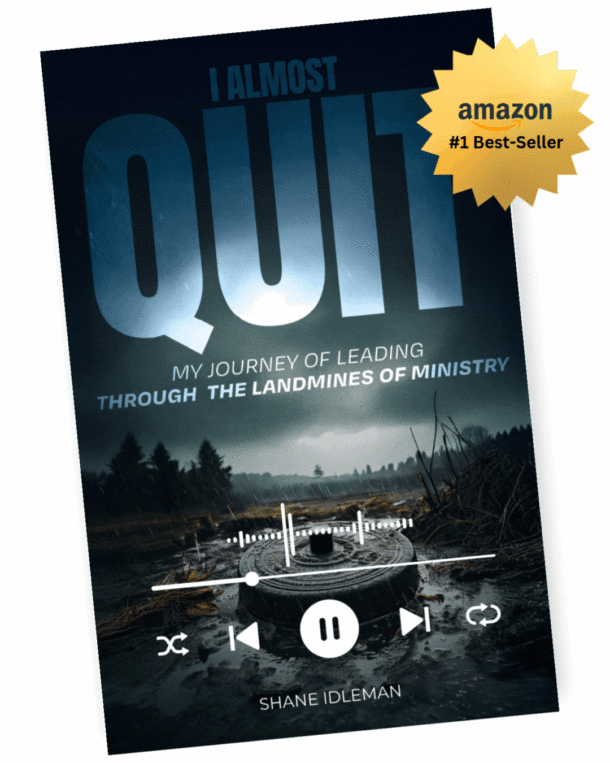COMPLETE SERMON NOTES
Last week: Christ Brings Division
Matthew 10:34 “Do not think that I came to bring peace on earth. I did not come to bring peace but a sword. 35 For I have come to ‘set a man against his father, a daughter against her mother, and a daughter-in-law against her mother-in-law’; 36 and ‘a man’s enemies will be those of his own household.’
-
I don’t want to leave you unclear about peacemaking.
Recommended Reading: The Peacemaker by Ken Sande: “Peacemakers breath grace into conflict [not strife].”
Intro: Peace must be fought for; it does not come naturally: “If possible, so far as it depends on you, be at peace with all men” (Romans 12:18).
Matthew 11:28-30 Come to me, all who labor and are heavy laden, and I will give you rest. Take my yoke upon you, and learn from me, for I am gentle and lowly in heart, and you will find rest for your souls. For my yoke is easy, and my burden is light.”
-
Doing it God’s way releases the heavy load and brings peace.
Matthew 5:9 “Blessed are the peacemakers, for they shall be called sons of God.
“Whoever defends himself will have himself for defense, and he will have no other. But let him come defenseless before the Lord and he will have for his defender no less than God himself.” -A.W. Tozer
If we’re suppose to model forgiveness and “bear with one another and…forgive each other, as the Lord has forgiven us” (cf. Colossians 3:13; ESV), how can we do this if we’ve never been offended?
-
Peacemaking does not involve negotiating the truth; it involves changing our attitude and actions to match the character of God.
How can we undo the emotional pain that we experience from conflict? First, we must understand that it’s a spiritual battle – our mind is where battles are won or lost. Those who do not forgive or release bitterness, anger, and hurt, never experience freedom, happiness, or ‘true’ restoration. It all starts here. Ephesians 4:31-32 says to “let all bitterness, wrath, anger, clamor, and evil speaking be put away from you, with all malice. And be kind to one another, tenderhearted, forgiving one another, even as God in Christ forgave you.”
Remove cutting remarks, negative comments, arguing, and destructive words and replace them with gentleness and sensitivity. Forgive one another quickly and completely as God forgave you.
Conflict will linger as long as we let it: Simply stated, if you fail to replace these negative attributes, they will damage relationships – including your walk with God.
Count the Cost: 1st ask, can I overlook it? If not, can I settle it quickly:
-
“Good sense makes one slow to anger, and it is his glory to overlook an offense” (Prov. 19)
EXAMPLES: Facebook emails being seen but not responded to, people acting a certain way and so on.
-
“Come to terms quickly with your accuser while you are going with him to court, lest your accuser hand you over to the judge, and the judge to the guard, and you be put in prison” (Matt. 5:25; ESV).
-
Ask, “God does this glorify You…the Christ they see in me?” This is when “rights” might need to be laid down, and “fairness.” Look at what this will cost you (real estate example). Another example of when I sold the Mazda Tribute (buyer gave us the car back).
-
Remove the log out of your eye first. God desires that we examine our lives and motives first before critiquing others. Jesus said in Matthew 7:5, “Hypocrite! First remove the plank from your own eye, and then you will see clearly to remove the speck from your brother’s eye.” Jealousy, pride, and envy can be catalysts for criticism and division.
When you truly remove your plank, your attitude does a complete 180. You’re gentle and humble; you want to listen instead of talk – talking puts us in defense mode. You don’t say in an angry tone, “I know I’m wrong too…I have faults, BUT…”
-
Each party shares their contribution to the conflict. “When someone mistreats or opposes us, our instinctive reaction is to justify ourselves and do everything we can to get our way. This selfish attitude usually leads to impulse decisions that only make matters worse” (Ken Sande).
- Restore gently. Paul encourages us to let your “gentleness be evident to all” in Philippians 4:5.
Paraphrasing Ken Sande, let me show you how these 4 flow together: “The Greek word translated gentleness means forbearance and large hearted and gentle and courteous and considerate, which is the opposite of rudeness and abrasiveness and irritability. Being gentle in the midst of conflict is a powerful way to breathe grace into others, especially when your behavior is evident to all (to remove the plank, glorify God, and resemble Christ). This is especially appropriate when the person who wronged you is experiencing unusual stress…the wrong done against you may be a symptom of a deeper problem. By responding in a gentle and compassionate way, you can minister powerfully to the other person. Our natural inclination is to not do these things. The key is to replace anger with prayer and Philippians 4 (meditate on pure, lovely, and noble things). This counterbalances our natural tendency to focus only on what is bad in those who oppose us. Being slow to speak and quick to listen allows us to take in the other point of view and allow God to work in our spirit. And you can relieve the pressure and restore gently by saying I contributed to this as well let me hear you out.”
NOTE: Forgiveness is not trust, and forgiveness does not mean I was wrong and the other person was right – forgiveness is a release.
The Challenge of the Peacemaker is walking in the Spirit
Let’s look at first Corinthians 13 NIV and see how that plays a role: 4“Love is patient, love is kind. It does not envy, it does not boast, it is not proud. 5It does not dishonor others, it is not self-seeking, it is not easily angered, it keeps no record of wrongs. 6Love does not delight in evil but rejoices with the truth. 7It always protects, always trusts, always hopes, always perseveres.”
-
Love is patient and kind. That means we listen and we seek to understand and we are gentle in our response.
-
It does not envy; it does not boast means that we’re not in attack mode.
-
It’s not easily angered and doesn’t keep record of wrongs.
- It always protects, always trusts, always hopes, always perseveres.
CLOSING: John 14:27 Peace I leave with you; my peace I give to you. Not as the world gives do I give to you. Let not your hearts be troubled, neither let them be afraid.
“Freedom from spiritual conflicts and bondage is not a power encounter (God vs. the Devil); it’s a truth encounter…Truth is the liberating agent…People in bondage are not liberated by what I do as the pastor, but by what they choose to believe, confess, renounce, and forgive.” – Neil T. Anderson, from the Bondage Breaker

